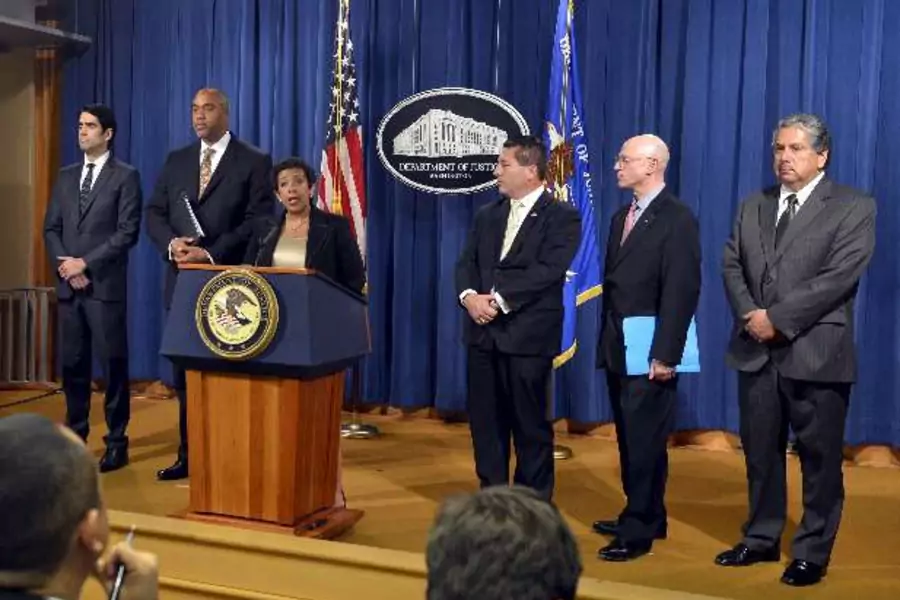Trade, Anticorruption, and Elections at the Start of 2016

More on:
As a new year begins, trade is slower, the drive against corruption continues, and electoral struggles shape fragile democracies. Here are three issues the Civil Society, Markets, and Democracy (CSMD) program will be following in 2016:
International Trade Slows
After two decades of trade growing twice as fast as GDP, the two are now even at best. With government spending largely stagnant and consumption fragile, this decline further diminishes prospects for economic growth. To revive this vital element of GDP, policymakers and economists often turn to Free Trade Agreements (FTAs), one of the most effective tools to boost international commerce. Yet these will face challenges in 2016. The recently-signed Trans-Pacific Partnership (TPP) still requires ratification by its twelve member countries. In the United States, despite fast-track legislation and vocal support from business leaders, opposition in both parties will likely push the TPP vote to a “lame duck” session in November. Meanwhile the China-led Free Trade Area of the Asia Pacific (FTAAP), a TPP alternative, failed to gain traction at the recent APEC meeting, and the U.S. and European Union’s Transatlantic Trade and Investment Partnership (TTIP) remains stalled over regulatory disagreements and European political opposition. As for multilaterals, members left the most recent World Trade Organization (WTO) Doha Round of negotiations without renewing its mandate, though they did promise to eliminate agricultural export subsidies. Policymakers will likely have to find other tools to promote global growth in 2016.
Corruption Prosecutions Continue
Anticorruption efforts triumphed in many places in 2015. Guatemalan prosecutors brought down President Otto Pérez Molina and Vice President Roxana Baldetti for their roles in a customs fraud scheme. Brazilian prosecutors indicted or convicted eighty business leaders and politicians, including a sitting senator, in the widening Petrobras scandal. In Nigeria, new President Muhammadu Buhari (who campaigned heavily on anticorruption) began investigations into billions of missing defense and oil funds, leading to fraud and money laundering charges against former national security advisor Sambo Dasuki and the UK arrest of former oil minister Diezani Alison-Madueke. And a U.S.-led investigation into FIFA uncovered a culture of “rampant, systemic and deep-rooted” corruption in soccer’s governing body, resulting in the indictment of thirty officials and forcing out its powerful president, Sepp Blatter.
The international momentum looks to keep pace in 2016. Nigeria’s anticorruption crusade persists, as its Economic and Financial Crimes Commission (EFCC) marked the new year by bringing charges against another former national security advisor, accused of diverting $1.5 million in defense funds from the fight against Boko Haram. The U.S. Department of Justice (DOJ) is signaling that FIFA was just the start, ramping up its Foreign Corrupt Practices Act (FCPA) staff and plans for high-profile prosecutions.
Elections in Fragile Democracies
Presidential runoff votes in the Central African Republic (CAR) and Haiti appear headed in opposite directions, highlighting the often-present tensions between stability and democratic legitimacy in fragile states. In CAR, opposition candidates rescinded previous fraud allegations and now support a runoff election scheduled for January 31, paving the way for a democratic transition after years of religious violence. In Haiti, Jude Célestin, the runner-up in a disputed presidential vote, announced he will not participate in an already-delayed runoff. Célestin joins other opposition candidates in questioning the capacity of Haiti’s Provisional Electoral Council (CEP) to administer a free and fair vote on January 24, after an independent commission uncovered evidence of first-round fraud and irregularities. With increasing doubts about an upcoming vote’s credibility, the Obama Administration stressed the importance of a peaceful transfer of power before a February 7 constitutional deadline. Ultimately, in CAR and Haiti’s elections—as well as those to come in 2016— citizens rather than foreign observers will need to accept the results of any outcome.
More on:
 Online Store
Online Store